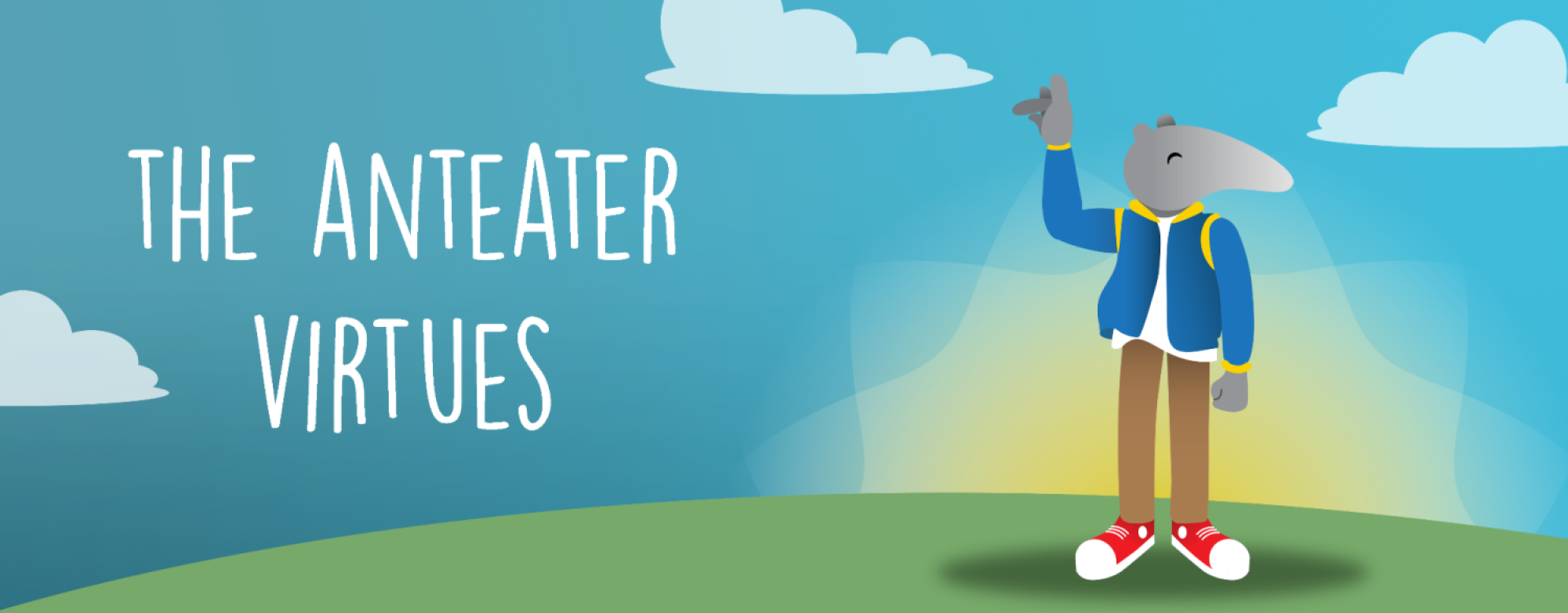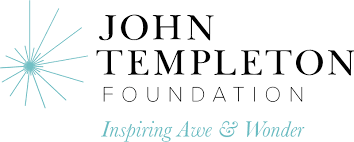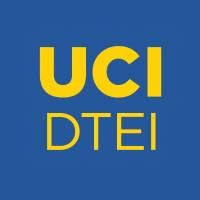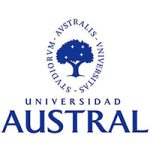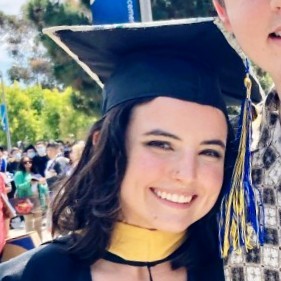Introductory Modules
Introductory Module 1: Introducing the Intellectual Virtues
‘Introducing the Anteater Virtues’, Duncan Pritchard (Philosophy, UCI)
Quiz 1: Introducing the Anteater Virtues
‘The Virtues’, Duncan Pritchard (Philosophy, UCI)
Quiz 2: The Virtues
‘Education and the Intellectual Virtues’, Duncan Pritchard (Philosophy, UCI)
Quiz 3: Education and the Intellectual Virtues
‘The Intellectual Virtues in Action’, Duncan Pritchard (Philosophy, UCI)
Quiz 4: The Intellectual Virtues in Action
Further Reading
There is lots of useful information about the intellectual virtues, including their relevance for education, at Jason Baehr’s Educating for Intellectual Virtues webpage. (Note that Jason Baehr, who is a Professor of Philosophy at Loyola Marymount University, is also centrally involved with the Anteater Virtues project).
Introductory Module 2: Curiosity
‘Introducing Curiosity’, Duncan Pritchard (Philosophy, UCI)
Quiz 1: Introducing Curiosity
‘Curiosity in Ancient Greece’, Darby Vickers (Philosophy, University of San Diego)
Quiz 2: Curiosity in Ancient Greece
‘Curiosity as an Intellectual Virtue’, Duncan Pritchard (Philosophy, UCI)
Quiz 3: Curiosity as an Intellectual Virtue
‘Historical Figure: Isaac Newton’, Michael Dennin (Physics and Astronomy, UCI)
Quiz 4: Historical Figure: Isaac Newton
‘Disciplinary Perspective: Biorobotics’, David Reinkensmeyer (Biorobotics, UCI)
Quiz 5: Disciplinary Perspective on Curiosity (I)
‘Disciplinary Perspective: Humanities’, Tyrus Miller (English, UCI)
Quiz 6: Disciplinary Perspective on Curiosity (II)
‘Curiosity in Action’, Duncan Pritchard (Philosophy, UCI)
Quiz 7: Curiosity in Action
Further Reading
Lani Watson, ‘Curiosity and Inquisitiveness’, Routledge Handbook of Virtue Epistemology, (ed.) H. Battaly, 155-66, (London: Routledge, 2019).
Introducing Module 3: Intellectual Humility
‘Introducing Intellectual Humility’, Duncan Pritchard (Philosophy, UCI)
Quiz 1: Introducing Intellectual Humility
‘Historical Figure: Desmond Tutu’, James Kyung-Jin Lee (Asian American Studies, UCI)
Quiz 2: Historical Figure: Desmond Tutu
‘Disciplinary Perspective: History’, Douglas Haynes (History, UCI)
Quiz 3: Disciplinary Perspective on Intellectual Humility (I)
‘Disciplinary Perspective: English’, Julia Lupton (English, UCI)
Quiz 4: Disciplinary Perspective on Intellectual Humility (II)
‘Disciplinary Perspective: Comparative Literature’, Georges Van Den Abbeele (Comparative Literature, UCI)
Quiz 5: Disciplinary Perspective on Intellectual Humility (III)
Further Reading
Nancy Snow, ‘Intellectual Humility’, Routledge Handbook of Virtue Epistemology, (ed.) H. Battaly, 178-95, (London: Routledge, 2019).
Introducing Module 4: Intellectual Tenacity
‘Introducing Intellectual Tenacity’, Duncan Pritchard (Philosophy, UCI)
Quiz 1: Introducing Intellectual Tenacity
‘Historical Figure: Marie Curie’, Vy Dong (Chemistry, UCI)
Quiz 2: Historical Figure: Marie Curie
‘Disciplinary Perspective: Physics & Astronomy’, Michael Dennin (Physics & Astronomy, UCI)
‘Disciplinary Perspective: Education’, Richard Arum (Education, UCI)
Quiz 3: Disciplinary Perspectives on Intellectual Tenacity
Further Reading
Nathan King, ‘Intellectual Perseverance’, Routledge Handbook of Virtue Epistemology, (ed.) H. Battaly, 256-72, (London: Routledge, 2019).
Introducing Module 5: Integrity
‘Introducing Integrity’, Duncan Pritchard (Philosophy, UCI)
Quiz 1: Introducing Integrity
‘Historical Figure: William Shakespeare’, Julia Lipton (English, UCI)
Quiz 2: Historical Figure: William Shakespeare
‘Disciplinary Perspective: Biological Sciences’, Brian Sato (Biological Sciences, UCI)
‘Disciplinary Perspective: Religious Studies’, Brianne Donaldson (Religious Studies & Philosophy, UCI)
Quiz 3: Disciplinary Perspectives on Integrity
Further Reading
Nathan King, ‘Honesty: Don’t Distort the Truth’, ch. 7 in his The Excellent Mind: Intellectual Virtues for Everyday Life, (Oxford: Oxford University Press, 2021). (Note that King’s focus on the intellectual virtue of honesty is a little more narrow than our concern with the broader intellectual virtue of integrity. Nonetheless, this chapter will be very useful further reading for this module).
Advanced Modules
Advanced Module 1: Wisdom I: Traditions
‘Introducing Wisdom I: Traditions’, Duncan Pritchard (Philosophy, UCI)
‘Wisdom in the Ancient Greek Tradition’, Duncan Pritchard (Philosophy, UCI)
Quiz 1: Wisdom in the Ancient Greek Tradition
‘Wisdom in Classical Indian Philosophy’, Jonardon Ganeri (University of Toronto, Canada)
Quiz 2: Wisdom in Classical Indian Philosophy
‘Wisdom in the African Tradition’, Paul Irikefe (Philosophy, UCI)
Quiz 3: Wisdom in the African Tradition
‘Wisdom in the Confucian Tradition’, Chienkuo Mi (Soochow University, Taiwan)
Quiz 4: Wisdom in the Confucian Tradition
Further Reading
For a broader look at the idea of wisdom in various schools of South and East Asian philosophical thought, see John M. Koller’s Asian Philosophies, 7th edition (New York: Routledge, 2018). For example, chapter 5 discusses the Perfection of Wisdom in Indian Buddhist tradition.
Advanced Module 2: Wisdom II: Applications
‘Introducing Wisdom II: Applications’, Duncan Pritchard (Philosophy, UCI)
‘How to Live Wisely’, Valerie Tiberius (University of Minnesota)
Quiz 1: How to Live Wisely
‘A Map to the Next World’, Joy Harjo (Poet Laureate)
‘Wisdom and ‘A Map to the Next World’’, Alicia Carroll (Comparative Literature, UCI)
Quiz 2: Wisdom and ‘A Map to the Next World’
‘Woman Wisdom’, Julia Lupton (English, UCI)
Quiz 3: Woman Wisdom
Further Reading
Ali Intezari and David Pauleen’s Wisdom, Analytics, and Wicked Problems: Integral Decision Making For the Data Age (Oxford: Routledge, 2019) draws on a range of wisdom traditions, from ancient to modern, and offers a practical model for incorporating wisdom into management decision making (in light of the Information Age). See Part III of their work, for example.
Advanced Module 3: Intellectual Vices I: Overview
‘Introducing Intellectual Vices I: Overview’, Duncan Pritchard (Philosophy, UCI)
‘What Makes the Intellectual Vices Bad?’, Josh Dolin (UCI, Philosophy)
Quiz 1: What Makes the Intellectual Vices Bad?
‘The Anteater Virtues and Their Vices’, Nancy Snow (Kansas University)
Quiz 2: The Anteater Virtues and Their Vices
‘Intellectual Vices of Inferiority and Superiority’, Alessandra Tanesini (Cardiff University)
Quiz 3: Intellectual Vices of Inferiority and Superiority
‘Disciplinary Perspective: Frantz Fanon: Mental Decolonization and the Intellectual Virtues’, Paul Irikefe (UCI, Philosophy)
Quiz 4: Disciplinary Perspective: Frantz Fanon: Mental Decolonization and the Intellectual Virtues
Further Reading
Quassim Cassam speaks on a podcast episode about his 2019 book Vices of the Mind: From the Intellectual to the Political.
Advanced Module 4: Intellectual Vices II: Vices of Superiority
‘Introducing Intellectual Vices II: Vices of Superiority’, Duncan Pritchard (Philosophy, UCI)
‘The Intellectual Vice of Closed-Mindedness I: What is Closed-Mindedness? ’, Heather Battaly (University of Connecticut, Storrs)
Quiz 1: The Intellectual Vice of Closed-Mindedness I: What is Closed-Mindedness?
‘The Intellectual Vice of Closed-Mindedness II: What Makes Closed-Mindedness an Intellectual Vice? ’, Heather Battaly (University of Connecticut, Storrs)
Quiz 2: The Intellectual Vice of Closed-Mindedness II: What Makes Closed-Mindedness an Intellectual Vice?
‘Historical Perspective: Closed Minds in an Open Universe: Quasars, Redshifts and Controversy, 1963 to 2023’, Barbara J. Becker (UCI, History)
Quiz 3: Historical Perspective: Closed Minds in an Open Universe: Quasars, Redshifts and Controversy, 1963 to 2023
‘The Vice of Intellectual Hostility’, Jason Baehr (Loyola Marymount University)
Quiz 4: The Vice of Intellectual Hostility
‘Historical Perspective: Plato on Intellectual Hostility’, Casey Perin (UCI, Philosophy)
Quiz 5: Plato on Intellectual Hostility
Further Reading
Alessandra Tanesini, ‘Superbia, arrogance, servility, and self-abasement’, ch. 5 in her The Mismeasure of the Self: A Study in Vice Epistemology, (Oxford: Oxford University Press, 2021).
This chapter focuses on vices that oppose intellectual modesty. Superbia (haughtiness) and arrogance are vices of superiority (the topic of this Module), whereas servility and self-abasement are vices of inferiority (the topic of Advanced Module 5). Thus, this reading acts both as a further exploration of the topics covered in this Module, and as a little look ahead to the following Module.
Advanced Module 5: Intellectual Vices III: Vices of Inferiority
‘Introducing Intellectual Vices III: Vices of Inferiority’, Duncan Pritchard (Philosophy, UCI)
‘The Intellectual Vice of Gullibility’, Kevin McCain (University of Alabama at Birmingham)
Quiz 1: The Intellectual Vice of Gullibility
‘Disciplinary Perspective: Failing Deliberative Ideals’, Simone Chambers (UCI, Political Science)
Quiz 2: Disciplinary Perspective: Failing Deliberative Ideals
‘Disciplinary Perspective: Gullibility’, Cailin O’Connor (UCI, LPS)
Quiz 3: Disciplinary Perspective: Gullibility
‘Disciplinary Perspective: The Vice of Intellectual Cowardice ’, Nancy McLoughlin (UCI, History)
Quiz 4: Disciplinary Perspective: The Vice of Intellectual Cowardice
‘Historical Figure: Wittgenstein on Intellectual Courage’, Anna Boncompagni (UCI, Philosophy)
Quiz 5: Historical Figure: Wittgenstein on Intellectual Courage
Further Reading
Alessandra Tanesini, ‘Vanity, Narcissism, Timidity, and Fatalism’, ch. 6 in her The Mismeasure of the Self: A Study in Vice Epistemology, (Oxford: Oxford University Press, 2021).
This chapter focuses on vices that oppose acceptance of one’s own limitations, and concern for esteem from others. Vanity and narcissism are vices of superiority (the topic of Advanced Module 4), whereas timidity and fatalism are vices of inferiority (the topic of this Module). Thus, this reading ties the topics of Advanced Modules 4 and 5 together.
Advanced Module 6: Intellectual Virtues in the Information Age I: Concepts
‘Introducing Intellectual Virtues in the Information Age I: Concepts’, Duncan Pritchard (Philosophy, UCI)
‘Information, Misinformation, Disinformation’, Sven Bernecker (Philosophy, UCI)
Quiz 1: Information, Misinformation, Disinformation
‘Bullshit’, Aaron James (Philosophy, UCI)
Quiz 2: Bullshit
‘Fake News’, Duncan Pritchard (Philosophy, UCI)
Quiz 3: Fake News
‘Echo Chambers’, Yuval Avnur (Scripps)
Quiz 4: Echo Chambers
‘Deep Fakes and AI Chatbots’, Orestis Palermos (Ioannina, Greece)
Quiz 5: Deep Fakes and AI Chatbots
Further Reading
Richard Heersmink, ‘A Virtue Epistemology of the Internet: Search Engines, Intellectual Virtues and Education’, Social Epistemology, 32(1), 1—12 (2018). https://doi.org/10.1080/02691728.2017.1383530.
Drawing on the work of Jason Baehr, Heersmink explores how intellectual virtues should be deployed (and how intellectual vices should be avoided) when using the internet, particularly search engines.
Advanced Module 7: Intellectual Virtues in the Information Age II: Themes
‘Introducing Intellectual Virtues in the Information Age II: Themes’, Duncan Pritchard (Philosophy, UCI)
‘Experts ’, Michel Croce (University of Genoa, Italy)
Quiz 1: Experts
‘Scepticism’, Duncan Pritchard (Philosophy, UCI)
Quiz 2: Scepticism
‘Intellectually Virtuous Arguing’, Duncan Pritchard (Philosophy, UCI)
Quiz 3: Intellectually Virtuous Arguing
‘Intellectual Courage’, Genia Schönbaumsfeld (University of Southampton, UK)
Quiz 4: Intellectual Courage
‘Intellectual Corruption’, Taylor Matthews (University of Southampton, UK)
Quiz 5: Intellectual Corruption
‘Relativism’, Annalisa Coliva (Philosophy, UCI)
Quiz 6: Relativism
‘Historical Perspective: Pascal on Rationality and Disagreement: The Framework’, Yuval Avnur (Scripps)
Quiz 7-1: Pascal on Rationality and Disagreement: The Framework
‘Historical Perspective: Pascal on Rationality and Disagreement: Application’, Yuval Avnur (Scripps)
Quiz 7-2: Pascal on Rationality and Disagreement: Application
Further Reading
Lani Watson, ‘Cultivating Curiosity in the Information Age’, Royal Institute of Philosophy Supplement, 92, 129–148 (2022). https://doi.org/10.1017/s1358246122000212. See also these two UCI MOOCs (= Massive Open Online Courses) on the topics of ‘Skepticism’ and ‘Relativism’ that are freely available on the Coursera platform: https://www.coursera.org/learn/skepticism; https://www.coursera.org/learn/relativism.
